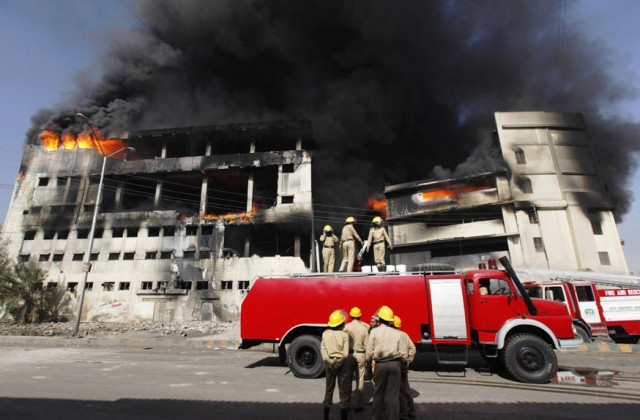Another inferno
There is still room to ensure that better measures exist at all industrial concerns to avoid hazards.

The encouraging news is that this time round, compared to the Baldia blaze, the response of the firefighting teams seemed to be quicker. They were also provided with foam, which is necessary for dealing with chemical fires and it seems that firefighting equipment was present in the building, though it could not be used as no one was present inside. Even so, problems did surface, with the major one being a desperate lack of water required to extinguish the flames, which also reached neighbouring buildings, destroying part of a warehouse storing rice.
Of course, fires cannot be prevented altogether. They occur everywhere in the world. But, perhaps, there is still room to ensure that better measures exist at all industrial concerns to avoid hazards along with drills to handle them when they do occur. Indeed, these drills need to be practised at schools, colleges, offices and all public buildings so that people know how to react in the event of an emergency. This knowledge can, in many cases, save lives and should be a part of routine procedure as a means of doing all that is possible to minimise the devastating damage caused so quickly by fires, as they consume buildings and all that lies within their wake, in a matter of minutes.
Published in The Express Tribune, October 31st, 2012.














COMMENTS
Comments are moderated and generally will be posted if they are on-topic and not abusive.
For more information, please see our Comments FAQ